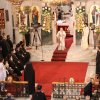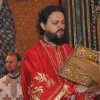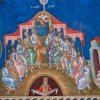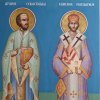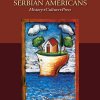by Bishop Maxim of Western American Diocese
At this year’s May session of the Holy Assembly of Bishops of the Serbian Orthodox Church held in Belgrade, it was clearly and unambiguously expressed that the will of the Bishops assembled is to support the convening of the upcoming Holy and Great Council, as well as confirming the participation of the Serbian Orthodox Churches, and by so doing affirm the Council, which will, God-Willing, be held in the Orthodox Academy of Crete on Pentecost from 17 to 26 June 2016.
“The message” of our Holy Assembly of Bishops to other Churches, which was read during the final session of our Assembly, and in no way included any conditions to our requests to the Holy and Great Council. We simply offered our views on some of the current issues raised, and by no means implied anything else. Specifically, our message stated that it is about “principled position on all the key issues on which will be discussed and decided upon by the Great Council.” It is important to point out, however, that the decision for the participation of our church was not made merely “in principle,” nor was it left for any further consideration or requirements to be made by anyone, including our Synod with the Patriarch at its head. We need not mention here that for decades now, the entire Orthodox Church in conciliarity and through various preconciliar commissions, has been preparing for this Council, and that the Primates recently confirmed and signed the decision for convening of the Holy and Great Council in the year 2016 (in Constantinople, or now in Crete). Additionally, members of the delegations from the local Churches signed not only the decision for the convening of the Council, but also the documents that will be considered by the Council, as well as the rules of procedure for the Council, and by so doing agreed to the agenda that was drafted for the Council. For these reasons, the efforts made in recent days to imply that the Serbian Church after all of its Hierarchical Assembly decisions would now ignore the will of its Assembly and the position of its delegation in the preparation for the Great Council which they themselves confirmed with their signature, is simply dishonest.
Therefore, we will be going to this Holy and Great Council, with the desire that it establish and guarantee the unity between the local Church within the one Church “in the ecumene,” and by so doing, pour forth the hope for our salvation from death. The Serbian Church does not sympathize with those of little faith which one might see in some who would in advance decide that the Great and Holy Council will not be the way they thought it should be. The bishops of our Church are conceding to the blessing of the Great and Holy Council, which is, as history testifies, in and of itself a “miracle” and an “event,” by which the Eucharist heals all wounds, those seen and those unseen.

